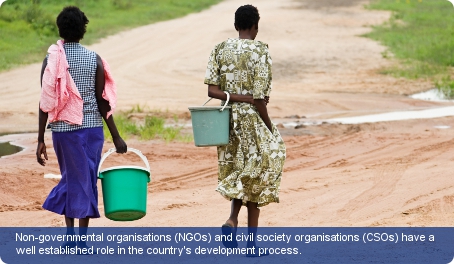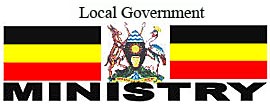Find Civil Society expertise in Uganda

Non-governmental organisations (NGOs) and civil society organisations (CSOs) have a well established role in the country’s development process. A series of NGOs concentrate solely on providing services to communities mostly in the fields of health, education and social welfare or on poverty alleviation through the boosting of income generation. The more significant of these NGOs include Uganda Change Agents Association (UCAA), Plan International, CARE, and ACCORD. Influential umbrella-NGOs include Deniva, an association of indigenous NGOs, the Uganda National NGO Forum and the National Union of Disabled Persons of Uganda.
Uganda works with the DFID and the USAID to help implement the Poverty Eradication Action Plan and includes projects in the areas of governance, immunisation, HIV/AIDS, sanitation, education and agriculture. Multiple international NGOs operate in the country which aims to improve health care, education, water sanitation and small businesses.
NGOs operating in Uganda must register with the NGO Registration Board in the Ministry of Internal Affairs. On initial registration with the Board, NGOs receive a one year registration certificate, which is renewable for a period of three years assuming that the NGO fulfils the renewal requirements. After the three years, the NGO is required to renew its certificate again and this time receives a certificate valid for five years. No lifelong certificate is issued for purposes of control and monitoring.
The sole national trade union centre in Uganda is the National Organisation of Trade Unions (NOTU). The prominent trade unions include the Amalgamated Transport and General Workers’ Union (ATGWU) which represents members in the transport, oils, chemical and private security industries; the Uganda Medical Workers’ Union (UMWU) and the Uganda Hotel, Food, Tourism and Allied Workers’ Union (UHFTAWU).







